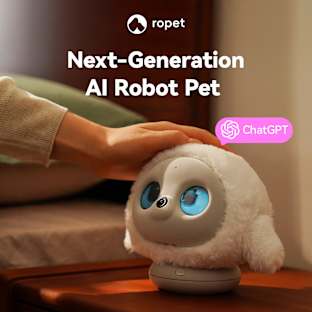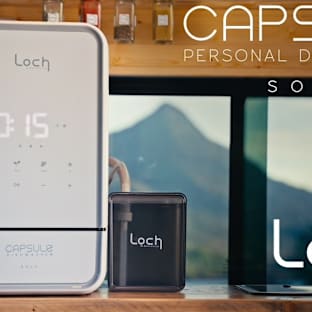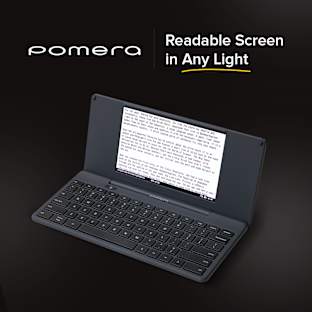-
Super power-efficient: Less than $1 a year to charge
-
Proven content: The open source textbooks and videos on our tablets have been tested in the US and have been proven to be more or as effective as costly commercial textbooks and tutoring sessions
-
Works without Internet: Content is preloaded onto the device itself
-
Measure Impact: Background analytics automatically track student progress
-
Approved content only: Only educational content can be loaded
-
Rewards: Children unlock playing time for preinstalled games by completing educational exercises first - adding further incentive to study
Content includes:
-
CK-12 textbooks (math, sciences, English): A California government study found that free textbooks produced by CK-12 met 100% of the state's curriculum standards and performed as well or better than paid alternatives.
-
Khan Academy videos: Khan Academy content allows kids to learn tough subjects at their own pace and with many examples - and has shown a statistical impact in academic performance.
-
Other tools: Wikipedia for schools, dictionaries, verb conjugators in many languages, scientific calculators, graphing software, periodic table, world map, digital atlas, grammar rules and quizzes, vocabulary apps, algebra and arithmetic apps with quizzes and games, grammar apps with practice quizzes, geography study quizzes... the list goes on.
![]()
Rumie is working with Camp for Peace to find the best academic content for the middle and secondary school students that use the tablets. In all deployments, Rumie works with partners to ensure that the preloaded content meets curriculum requirements and that children are actively progressing through these materials.
How will tablets be used when schools reopen?
In general, Rumie tablets are deployed through existing schools systems – this is how our deployments work in all other countries (see Rumie.org/locations). Indeed, Liberia was originally intended to be the same, but the Ebola outbreak changed everything – and we and our partner learned, almost by accident, that the portability, intuitiveness, and interactivity of the devices made them a game changer when kids have no other alternatives (such as right now).
When school reopens, which we hope will be sooner than later, the tablets will continue to drive impact for children in Liberia. And the unfortunate reality is that the educational system in Liberia needs help even when it's fully open: in 2013, every single secondary school graduate failed the admission test for the University of Liberia. (Seriously.) Nearly 25,000 students failed the exam, showing that they were not adequately prepared in secondary school for university.
Through Camp for Peace, Abel will continue his educational program based around the tablets. They help students study, relearn difficult concepts, and practice their skills. They also significantly encourage the students: the fact that the educational content is on tablets makes it much more appealing and exciting to students, most of whom have never used a tablet computer before. Moreover, experience with technology makes these students much more 'marketable' in the job market.
Abel sees the enormous power of Rumie Tablets on child learning: “I have seen the Rumie Tablet as a very great resource that can rapidly boost our educational system in this country. Rumie is inspiring and motivational; it controls and engages kids very positively even when they are less interested to learn. One of the most striking things is the level of peer learning and support between students. Even on my busy days, the kids come together to teach each other. With this, I am overwhelmed!"
How You Can Help
Even if you can't donate money to support our campaign, you can still help us by getting it in front of people who can!
- Sign up to donate a Facebook status or Tweet on Thunderclap, a crowd-speaking platform that helps amplify messages by bringing people together
- Get #EduOverEbola trending
- Use our #EduOverEbola Facebook and Twitter banners: download here
- Help us find great, free digital educational content to deliver on tablets – contact info@rumie.org to sign up
- And don't forget to like us on Facebook, follow us on Twitter, follow our campaign on Indiegogo, and sign up for our newsletter to keep updated on our campaign and our work in Liberia and around the world!
Frequently Asked Questions
Who or what is a Rumie?
For a quick intro to us, check out this short elevator pitch from our founder, Tariq Fancy (it's just over one minute).
So how are you making money on this?
We're not – we’re actually a non-profit organization, founded and backed by people with for-profit private sector experience - in finance, tech, start-ups, and other areas. (The good news for you is that this means you can get a tax receipt!)
There are one billion children around the world that lack access to a quality education. We see an exciting opportunity opening up to use affordable technology to link these children with the great educational materials that are available freely online (and that we probably take for granted today).
How do you send 100% of my contribution to the field? Who pays overhead?
Our overhead, technology development, and other costs are all funded by large private backers who understand, believe in and are involved with our cause - meaning that you don't have to worry: 100% of your backing goes directly to increasing our impact in the field.
Those private backers include business leaders who have made very large personal contributions to support us (such as Rob McEwen and Ed Clark, among others).
Why are you giving tablets to starving kids?
We hate this question, but we unfortunately get asked it sometimes so here goes. First, when we say one billion kids are underserved in education, that includes a range of kids – from kids in Brazilian favelas to underfunded classrooms in Nairobi to kids in rundown communities in Mississippi. The caricature that they're all only starving kids with flies on their faces awaiting handouts is not only wrong, it's also slightly offensive.
Second, none of the world's problems (ranging from climate change to human rights) can be solved in one fell swoop. But by investing in the education of the future of humanity, we increase the chances that tomorrow's adults have the tools to solve those problems effectively.
Finally, in Liberia specifically the challenge is education – it was so before the Ebola outbreak, and is even more so now that schools have been closed for four months. We have a solution that is showing good results, and moreover has massive potential globally, so we're asking you to join us.
How do children charge the devices?
We work in communities with basic access to power. Mobile phone usage is a good indicator (it has skyrocketed in developing countries). Where there is no access to power we involve a partner who specializes in solar or other renewable power sources.
Fortunately, our devices use very little power, meaning they're inexpensive to charge (less than $1 per year).
Is the content you use high quality?
Yes. We evaluate the content we use and work with our local partners to choose the best options to use for each local community.
Free and great content is becoming widespread in the last few years. Statistical tests show that many of these free sources are driving student achievement gains even for the most affluent communities in rich nations.
Imagine what would happen if we could give children in poor communities – who are just as inherently capable – access to this same great content? That's our central mission at Rumie.
What else do you add to the devices?
We've developed a custom interface to manage how children access the device, allowing us to do many cool things.
For example, we can control which games go on the device – limiting them to ones with educational value, and setting them up to be unlocked for short periods to reward kids for good behaviour.
We also focus on synchronization and analytics: when devices connect to the internet (say, once a month) our system updates content and collects anonymous analytics data on how devices have been used, so we can monitor programs and keep making this approach better.
Is this meant only for developing countries?
No, and this is a very important point. Our second deployment focused on a remote aboriginal community in Canada, a country whose strong overall student test scores mask deep inequalities between regions. We're currently planning a deployment in Queens, New York too.
This movement is about providing access to education for underprivileged children anywhere.
Do you distribute directly?
As of now, we only distribute through local partners on the ground.
We focus on making a great tool that local educators can use to better serve the children in their communities.
Do you decide the content that goes on the devices?
No we do not. We help organize what is available, and then work with partners on the ground.
They make the ultimate decision on what content they would like to teach to their children.
We tend to focus on the STEM (Science, Technology, Engineering and Math) subjects, both because it is where many of our target communities would like to see improvement and also because it is easier to find culturally-neutral content in a field like math than it is in literature. Our partners usually add locally relevant material for literature and humanities subjects.
How are you different from One Laptop Per Child?
It's simple: we don't deliver technology, we use technology to deliver content. For us, technology is simply a means not an end. This is important, because all the research shows that delivering kids technology for the sake of it does not impact their learning. On the other hand, delivering high quality content that has already been proven to work, monitoring impact and usage of that content, and adding gamification and incentives (all of which we do) does drive statistical impact in reading and math scores.
While the One Laptop Per Child (OLPC) project was noble in its aims, they largely focused on technology for the sake of it: giving every child a laptop was the primary goal. The device was really expensive too – we now produce Rumie Tablets for less than one quarter of the price their laptops used to cost.
In sum, OLPC gave kids a laptop costing over $200 with no content on it (and limited or no internet connection to get more). It was a technology play. Many years later, we produce a $50 device that comes preloaded with curriculum-relevant, carefully chosen content that used to cost over $5,000 to produce. It is a content play. One thing partners consistently tell us is that it saves them a ton of money: they get a library for the cost of a textbook.
Who We Are
Rumie is made up of a group of diverse, dedicated individuals who all share the same mission: getting education to the children who need it most.
![]()
Our values:
1. Education is a human right.
2. Technology is a means not an end.
3. We work with local partners to empower teachers with the tools they need to succeed.
Rumie was founded in 2013 by Tariq Fancy, who was recently the subject of an
INSEAD Business School study on his finance career and decision to start Rumie.
In just a year, Rumie has raised almost $1M in funding from private donors. CEOs and Wall Street's best are allocating personal capital to back Rumie with no prospect of any financial return... just conviction in the huge long-term impact.
Thank you!
Note on tax receipts: Rumie is an approved 501(c)(3) nonprofit in the US and will issue tax receipts for donations received from the US. Tax receipts will be issued after the campaign closes in December.
Rumie's charity status in Canada is approved by the CRA. Rumie will issue tax receipts for donations received from Canada after the campaign closes in December.





















































